
Sir Adrian Cedric Boult, CH was a British conductor. Brought up in a prosperous mercantile family, he followed musical studies in England and at Leipzig, Germany, with early conducting work in London for the Royal Opera House and Sergei Diaghilev's ballet company. His first prominent post was conductor of the City of Birmingham Orchestra in 1924. When the British Broadcasting Corporation appointed him director of music in 1930, he established the BBC Symphony Orchestra and became its chief conductor. The orchestra set standards of excellence that were rivalled in Britain only by the London Philharmonic Orchestra (LPO), founded two years later.
The BBC Symphony Orchestra is a British orchestra based in London. Founded in 1930, it was the first permanent salaried orchestra in London, and is the only one of the city's five major symphony orchestras not to be self-governing. The BBC SO is the principal broadcast orchestra of the British Broadcasting Corporation (BBC).
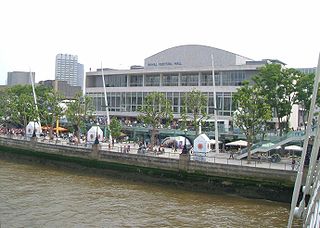
The London Philharmonic Orchestra (LPO) is a British orchestra based in London. One of five permanent symphony orchestras in London, the LPO was founded by the conductors Sir Thomas Beecham and Malcolm Sargent in 1932 as a rival to the existing London Symphony and BBC Symphony Orchestras.
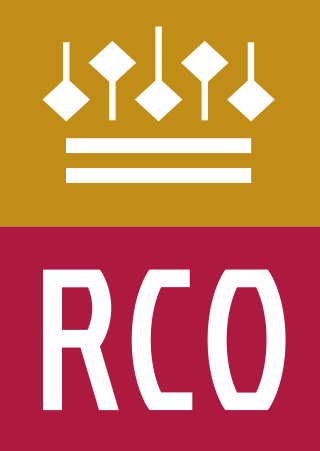
The Royal Concertgebouw Orchestra is a Dutch symphony orchestra, established in 1888 at the Amsterdam Royal Concertgebouw. It is considered one of the world's leading orchestras. It was known as the Concertgebouw Orchestra until Queen Beatrix conferred the "Royal" prefix upon it in celebration of its centenary in 1988; the prefix was also granted to the concert hall in 2013.
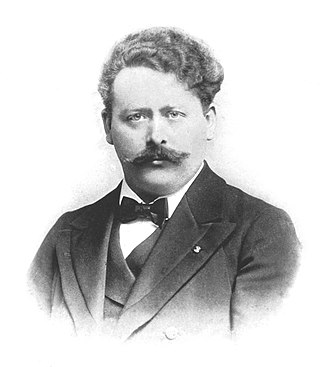
Joseph Wilhelm Mengelberg was a Dutch conductor, famous for his performances of Beethoven, Brahms, Mahler and Strauss with the Concertgebouw Orchestra in Amsterdam. He is widely regarded as one of the greatest symphonic conductors of the 20th century.
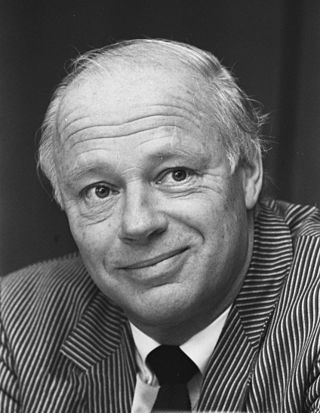
Bernard Johan Herman Haitink was a Dutch conductor and violinist. He was the principal conductor of several international orchestras, beginning with the Royal Concertgebouw Orchestra in 1961. He moved to London, as principal conductor of the London Philharmonic Orchestra from 1967 to 1979, music director at Glyndebourne Opera from 1978 to 1988 and of the Royal Opera House from 1987 to 2002, when he became principal conductor of the Staatskapelle Dresden. Finally, he was principal conductor of the Chicago Symphony Orchestra from 2006 to 2010. The focus of his prolific recording was classical symphonies and orchestral works, but he also conducted operas. He conducted 90 concerts at The Proms in London, the last on 3 September 2019 with the Vienna Philharmonic. His awards include Grammy Awards and the 2015 Gramophone Award for his lifetime achievements.
The Rotterdam Philharmonic Orchestra is a Dutch symphony orchestra based in Rotterdam. Its primary venue is the concert hall De Doelen. The RPhO is considered one of the Netherlands' two principal orchestras of international standing, second to the Royal Concertgebouw Orchestra of Amsterdam. In addition to symphony concerts, the RPhO performs as the opera orchestra in productions at De Nederlandse Opera, as do other Dutch ensembles.

Henk Badings was an Indonesian-Dutch composer.
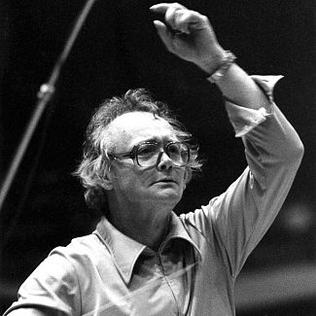
Klaus Hermann Wilhelm Tennstedt was a German conductor from Merseburg. Known for his interpretation of the Austro-German repertoire, especially his sympathetic approaches towards Gustav Mahler, Tennstedt is widely considered one of the greatest and most influential conductors of the late 20th century. He worked with the Swedish Radio Symphony Orchestra, the NDR Symphony Orchestra, and other highly regarded ensembles such as the Berlin Philharmonic Orchestra, and most notably the London Philharmonic Orchestra, with which he was closely associated and recorded many of his celebrated recordings under the EMI label, including a cycle of Mahler's 10 symphonies.

Spring Symphony is a choral symphony by Benjamin Britten, his Opus 44. The work is scored for soprano, alto and tenor soloists, mixed choir, boys' choir and orchestra. Britten used texts of several poems related to spring, mostly from the 16th and 17th centuries and also one by W. H. Auden. Britten dedicated the work to Serge Koussevitzky and the Boston Symphony Orchestra. The work received its premiere in the Concertgebouw, Amsterdam on 14 July 1949 as part of the Holland Festival

Willem Kes (Dordrecht, 16 February 1856 – München, 22 February 1934, was a Dutch conductor, composer, violist, and violinist. He was the first principal conductor of the Concertgebouw Orchestra of Amsterdam, holding that position from 1888 to 1895.

Paul van Kempen was a Dutch conductor.

Cornelis 'Kees' Dopper was a Dutch composer, conductor and teacher.

Jaap van Zweden is a Dutch conductor and violinist. He is currently music director of the Hong Kong Philharmonic Orchestra, the New York Philharmonic, and the Seoul Philharmonic.

Henri Arends was a Dutch conductor.
Thom de Klerk (Thomas Johannes Josephus) (10 May 1912, The Hague, Netherlands – 13 October 1966, Abcoude). Dutch bassoonist, double reed maker, music teacher, conductor and music director. Thom de Klerk was the first solo bassoonist of the Royal Concertgebouw Orchestra from 1935 until 1966. He was successful with the directors Willem Mengelberg, Eduard van Beinum and Bernard Haitink. Guest directors like Eugen Jochum, Arturo Toscanini and Pierre Monteux made special requests for his presence in the orchestra.
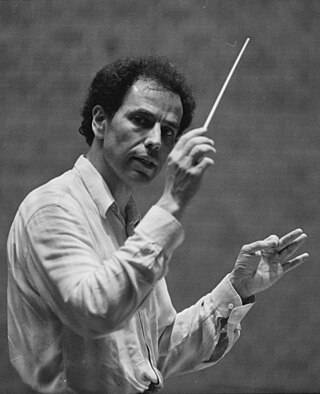
Eduard Philip Spanjaard, known professionally as Ed Spanjaard, is a Dutch conductor and pianist.
The Antwerp Symphony Orchestra is a Belgian symphony orchestra based in Antwerp, with the Queen Elisabeth Hall as its principal concert venue. The orchestra performs in a number of venues in various cities in Belgium:
Karina Canellakis is an American conductor and violinist.

Jan Dahmen was a Dutch violinist. He was the first concertmaster of the Staatskapelle Dresden and of the Royal Concertgebouw Orchestra in Amsterdam.















